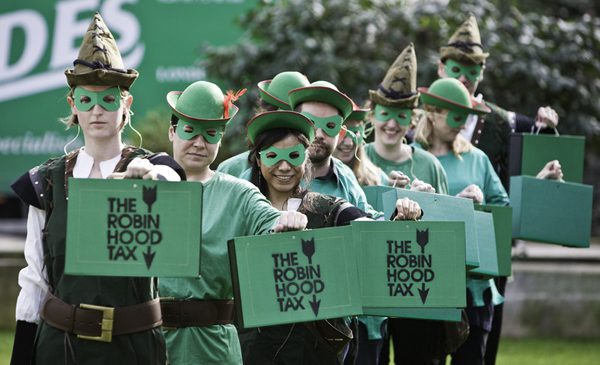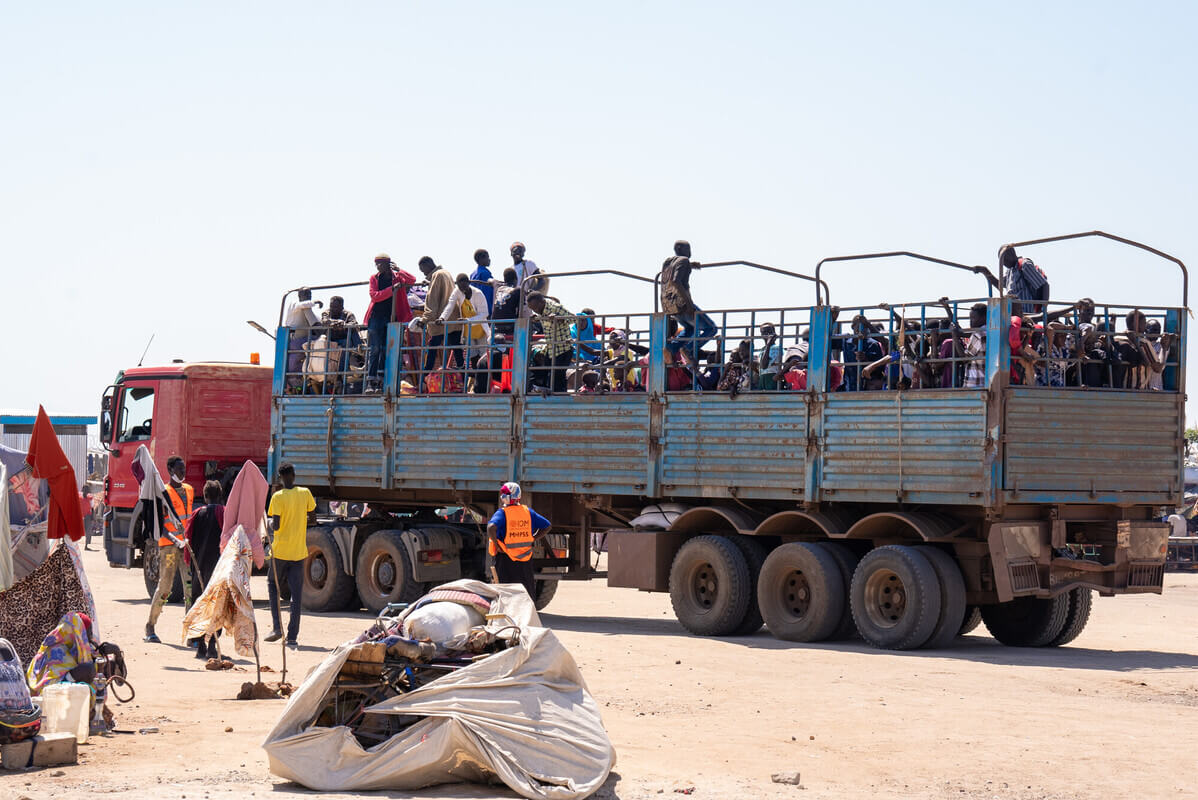Prime Minister Gillard is about to embark across the ocean to France for the G20 summit meeting, where Oxfam Australia hopes Australia will support the effort to implement an Financial Transaction Tax (FTT), also know as the Robin Hood Tax.
A Robin Hood Tax (RHT) won’t affect everyday consumers – instead it will tax financial transactions between banks, hedge funds and other strong financial institution from as little as 0.01 per cent to 0.05 per cent. This tiny tax has the potential to raise up to $400bn a year, and Australia alone could raise up to $18bn.
The backing of a RHT by Pope Benedict is a welcome sight – he highlights fair taxation measures that contain modulated rates proportionate to the complexity of the operations. The Vatican says, “Such taxations would be very useful in promoting global development and sustainability according to the principles of social justice and solidarity.” It goes on to emphasise the possibility of supporting economies of countries affected by crisis and the potential assistance for the recovery of their monetary and financial systems.
The RHT proposes that 50 per cent of money raised will go toward underfunded public sectors such as domestic health and education. The other 50 per cent will be equally divided to poor countries tackling poverty and to assist poor countries adapting to the impacts of climate change.
While there are claims that the tax benefits can only succeed with global agreement, Bill Gates’ draft proposal to the G20 states that the tax is feasible for a group of like-minded countries doing it alone. The Guardian reports that Gates’ proposal indicates “some modelling suggests that even a small tax of 10 basis points on equities and two basis points on bonds would yield about $48bn on a G20-wide basis, or $9bn if confined to larger European economies.”
Oxfam believes the G20 meeting should be pushing for an international banking tax, hoping to help investment in healthcare and schools, and aid the fight against global poverty and climate change.
Implementing a Robin Hood Tax could potentially create positive change nationally and internationally, to erase the impacts of crisis on a global scale.
Sarah Norton is a volunteer with Oxfam Australia
What you can do:
- Ask Julia Gillard and Wayne Swan to push for a Robin Hood Tax at the G20 level
- Read more about Bill Gates’ proposal to the G20
- Join our global Twitter action aimed at convincing G20 leaders to back a Robin Hood tax



